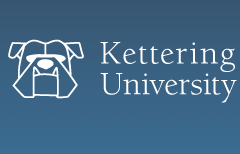Effect of Contact Stress in Bones of the Distal Interphalangeal Joint on Microscopic Changes in Articular Cartilage and Ligaments
Document Type
Article
Publication Date
3-1-2001
Publication Title
American Journal of Veterinary Research
Abstract
Objective—To examine articular cartilage of the distal interphalangeal (DIP) joint and distal sesamoidean impar ligament (DSIL) as well as the deep digital flexor tendon (DDFT) for adaptive responses to contact stress.
Sample Population—Specimens from 21 horses.
Procedure—Pressure-sensitive film was inserted between articular surfaces of the DIP joint. The digit was subjected to a load. Finite element models (FEM) were developed from the data. The navicular bone, distal phalanx, and distal attachments of the DSIL and DDFT were examined histologically.
Results—Analysis of pressure-sensitive film revealed significant increases in contact area and contact load at dorsiflexion in the joints between the distal phalanx and navicular bone and between the middle phalanx and navicular bone. The FEM results revealed compressive and shear stresses. Histologic evaluation revealed loss of proteoglycans in articular cartilage from older horses (7 to 27 years old). Tidemark advancement (up to 14 tidemarks) was observed in articular cartilage between the distal phalanx and navicular bone in older clinically normal horses. In 2 horses with navicular syndrome, more tidemarks were evident. Clinically normal horses had a progressive increase in proteoglycans in the DSIL and DDFT.
Conclusions and Clinical Relevance—Load on the navicular bone and associated joints was highest during dorsiflexion. This increased load may be responsible for microscopic changes of tidemark advancement and proteoglycan depletion in the articular cartilage and of proteoglycan production in the DSIL and DDFT. Such microscopic changes may represent adaptive responses to stresses that may progress and contribute to lameness. (Am J Vet Res 2001;62:414–424)
Volume
62
Issue
3
First Page
414
Last Page
424
DOI
10.2460/ajvr.2001.62.414
ISSN
0002-9645
Rights
© 2001 American Veterinary Medical Association
Recommended Citation
Atkinson, Patrick; Bowker, Robert M.; Atkinson, Theresa; and Haut, Roger C., "Effect of Contact Stress in Bones of the Distal Interphalangeal Joint on Microscopic Changes in Articular Cartilage and Ligaments" (2001). Mechanical Engineering Publications. 101.
https://digitalcommons.kettering.edu/mech_eng_facultypubs/101

